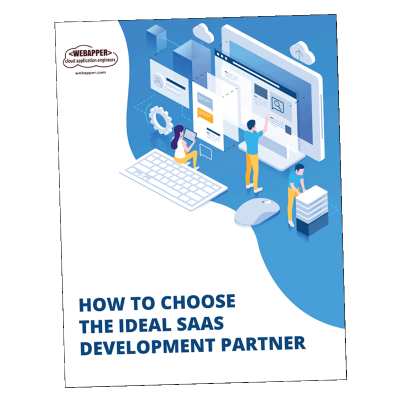The Case for Private SaaS
As security challenges mount for enterprise customers, we see an emergence of private SaaS solutions. In this model, the vendor provides cloud-based software exclusively for a single customer or select customers. Instead of using shared public infrastructure, software is managed on private infrastructure. Enterprises and large organizations who need major customizations to the system, stringent security, or definitive control over their environment use dedicated SaaS, which differs from a multi-tenant SaaS model. Rather than a single instance of software being shared by customers, each customer has their own environment. Check out the compelling case for private SaaS.
Private SaaS Is…
-
Private Cloud
Systems are hosted on private cloud infrastructure that is operated by the SaaS provider. It is not hosted on public cloud infrastructure.
-
Secure
Systems use strong security like encryption, access controls, and monitoring to prevent unauthorized access and protect sensitive data.
-
Single Tenant
Each customer gets their own dedicated environment that is not shared with others. each customer has its own instance of the application, data, and infrastructure.
Examples of Private SaaS
Enterprises
Large businesses with complex processes need custom solutions.
Government
Agencies must provide secure access to sensitive data by employees working in a variety of locations.
FinTech
Vendors need secure data storage and encryption to protect sensitive financial information from cyberattacks.
Healthcare
Organizations need to track medical records and manage patient data.
Education
Schools need to manage student records, course materials, and online learning systems.
Private Providers
Amazon Web Services (AWS)
AWS provides private SaaS solutions via AWS PrivateLink. Customers can securely access AWS services in their own virtual private cloud (VPC).
Microsoft Azure
Microsoft offers private SaaS solutions via Azure Private Link service within a customer’s VPC.
Google Cloud
Google provides solutions via its VPC Service Controls.
VMware
VMware provides solutions via its VMware Cloud on AWS. Customers can run applications on VMware’s software-defined data center infrastructure in a private cloud environment.
Salesforce
Salesforce offers its Platform as a Service (PaaS). Customers can build custom applications on top of Salesforce.
How to Deploy
Set Up Infrastructure
Provision the infrastructure by setting up a private cloud environment.
Configure Software
Configure the software to meet the customer requirements, such as customizing features & functionality.
Manage Security & Compliance
Ensure that the customer’s security and compliance requirements (e.g., encryption, access controls) are addressed.
Integrate
Integrate with existing systems and applications…and test!
Support
Deploy to the customer’s private environment and manage ongoing development and support.
Advantages of Private SaaS
Security
Data is stored in a dedicated, private cloud environment.
Control
Organizations have explicit control over their data.
Compliance
Meet specific regulatory compliance requirements and adhere to industry regulations.
Customization
Organizations can tailor software to address specific requirements.
Integration
Leverage proven SaaS while providing seamless workflows with current enterprise systems.
The Case for Private SaaS
Private SaaS enables vendors to deliver exclusively for select customers using private infrastructure with strong security. Each customer has their own dedicated environment and instance of the application, data, and infrastructure. It offers advantages such as security, control, compliance, customization, and integration Providers like Amazon Web Services, Microsoft Azure, Google Cloud, VMware, and Salesforce readily support deployments. As the amount of sensitive data stored in the cloud continues to increase, we expect private SaaS to grow alongside microSaaS and mobile SaaS, especially for enterprise customers with complex processes and stringent security requirements.



Leave A Comment